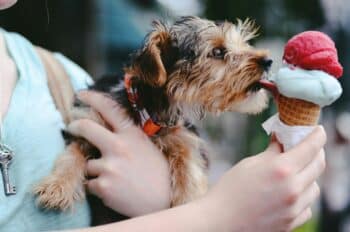
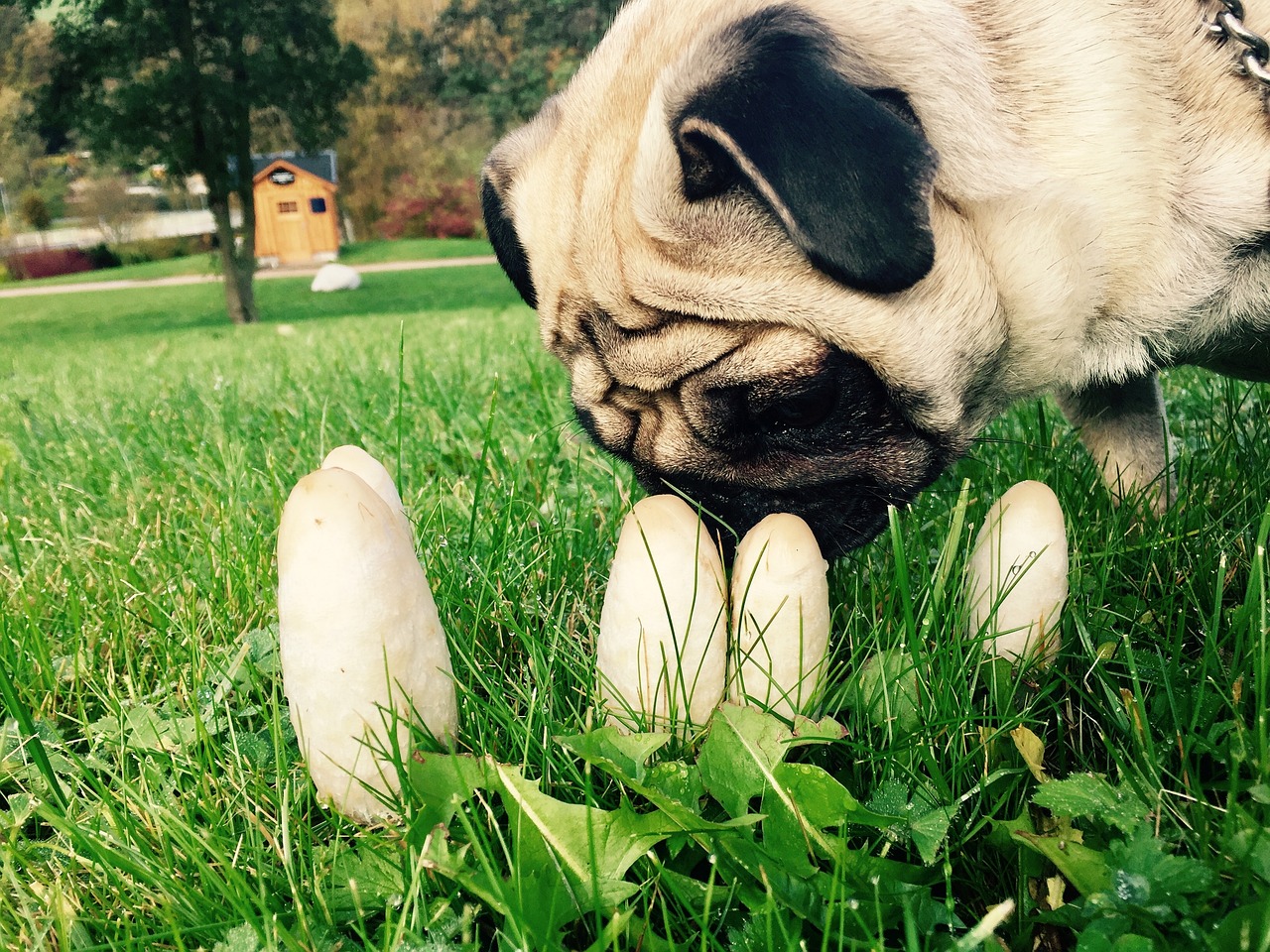
As dog owners, we love sharing treats with our furry friends, but it’s essential to know that not all foods are safe for dogs. Certain human foods can be downright dangerous or even toxic. Dogs have unique digestive systems and metabolisms, meaning some foods that are safe for us can be harmful or even life-threatening for them. Understanding which foods to avoid can help keep your dog healthy, happy, and safe. Knowing these risks ensures your pup enjoys treats that are truly safe and enjoyable.
Chocolate
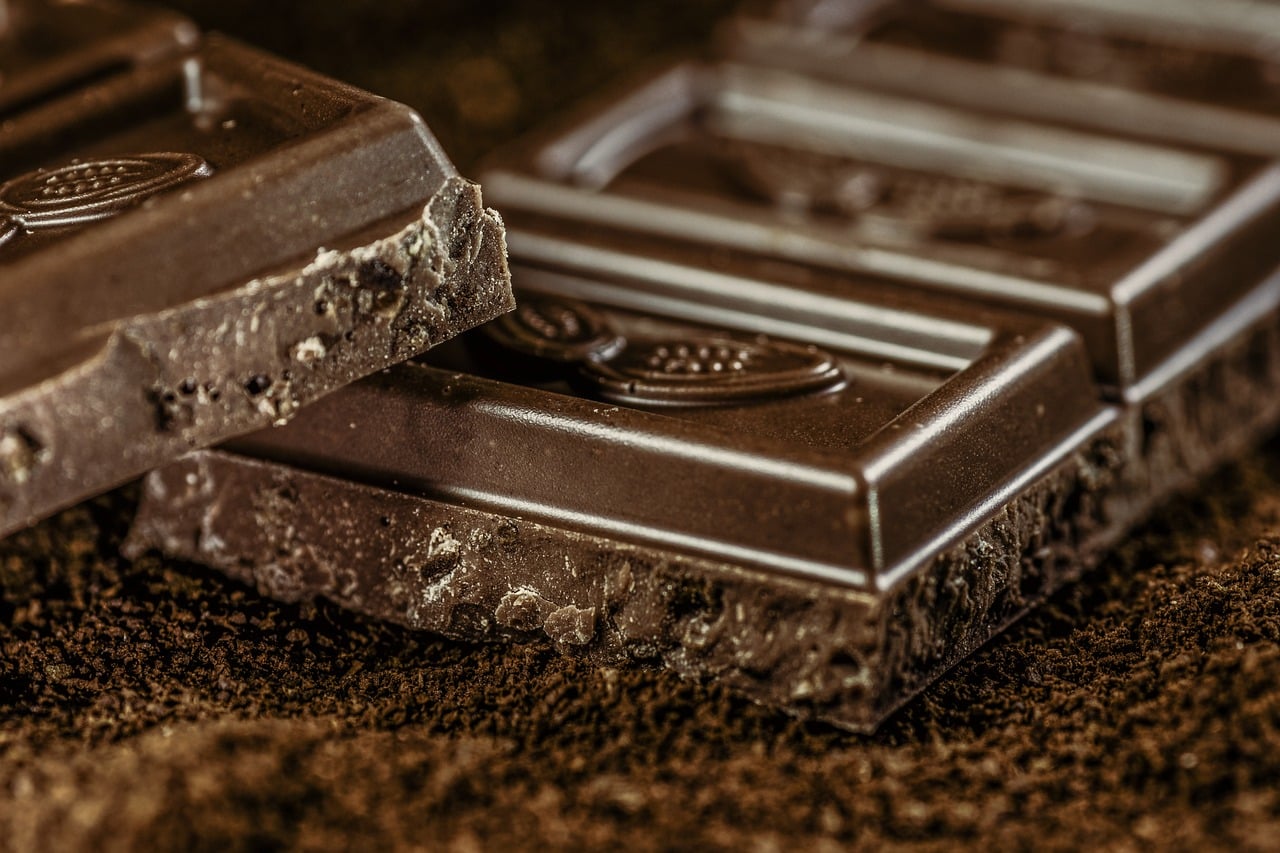
Chocolate contains theobromine and caffeine, both of which are toxic to dogs. The darker the chocolate, the more dangerous it is, as it contains higher levels of theobromine. Even a small amount can lead to symptoms like vomiting, diarrhea, and hyperactivity, while larger amounts may cause seizures or even be fatal. Always keep chocolate out of reach and avoid sharing any chocolate treats with your dog.
Grapes and Raisins
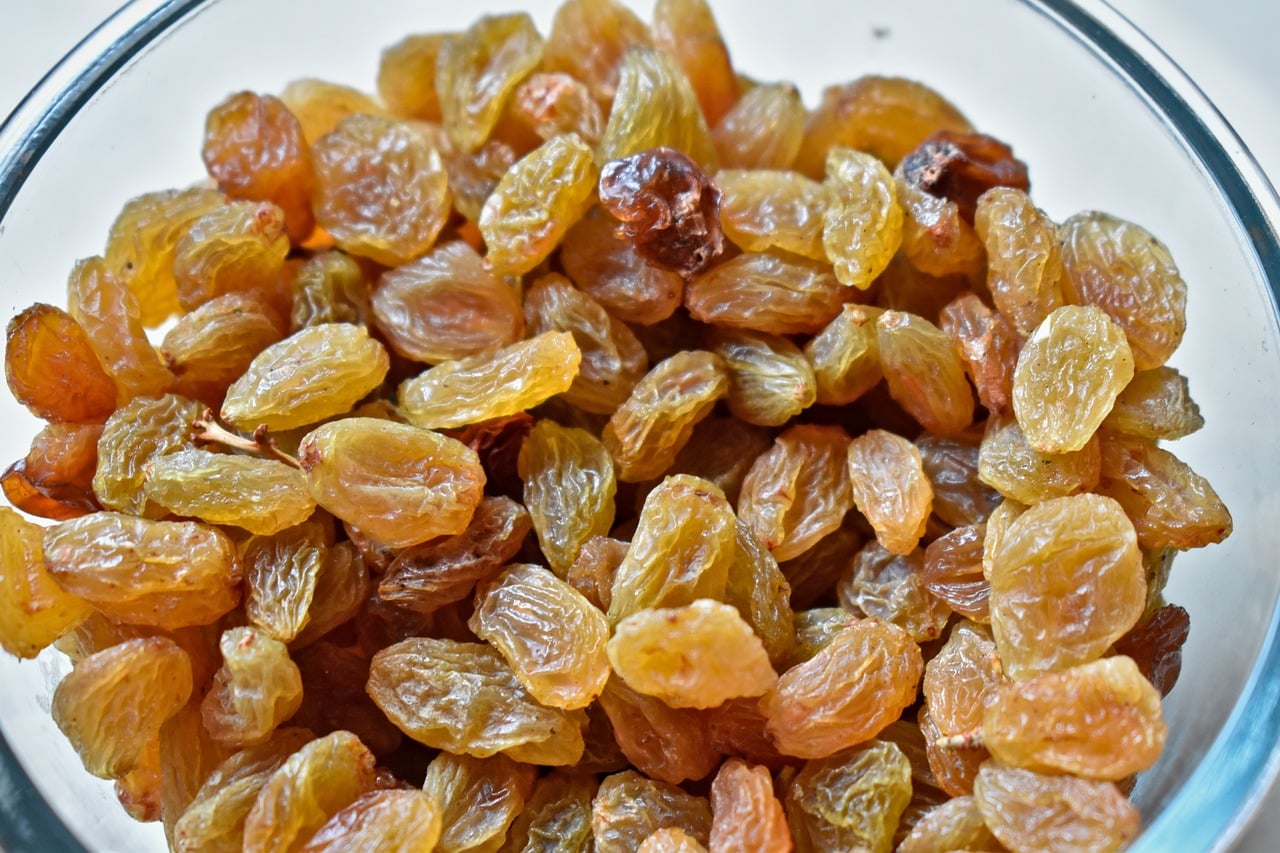
Grapes and raisins can cause kidney failure in dogs, and even small amounts can be toxic. While the exact reason for their toxicity is unknown, symptoms like vomiting, lethargy, and loss of appetite can appear quickly. Kidney damage can happen rapidly, so it’s essential to keep these fruits far away from your dog’s reach.
Onions and Garlic
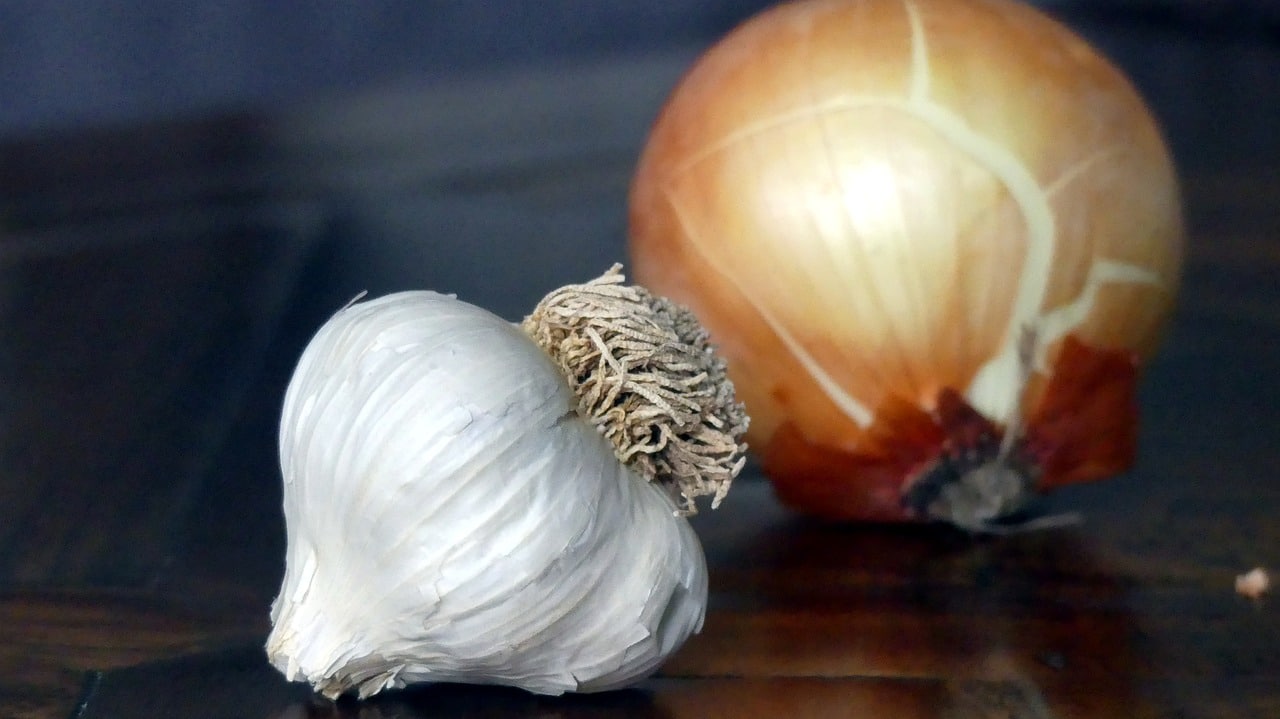
Onions and garlic, whether raw, cooked, or powdered, contain compounds that can damage dogs’ red blood cells, leading to anemia. Symptoms of onion or garlic poisoning include weakness, vomiting, and breathlessness. Be cautious about foods that contain onion or garlic powder, like some sauces and seasonings, as even small amounts can be dangerous over time.
Avocado
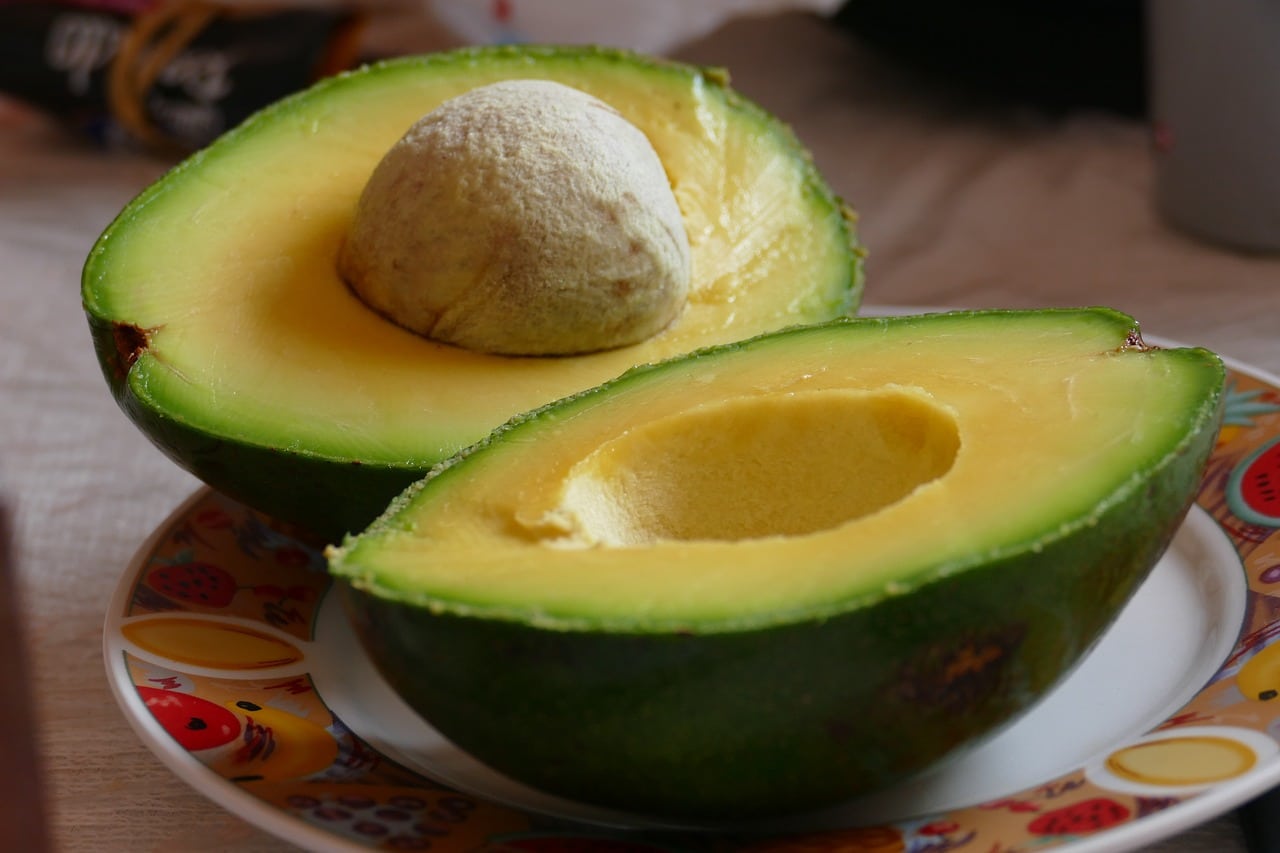
Avocado contains a substance called persin, which is toxic to dogs and can cause vomiting, diarrhea, and heart issues. The pit is especially dangerous because it can cause choking or intestinal blockages. While some dogs may tolerate small amounts of avocado, it’s best to avoid it altogether to prevent any risks.
Alcohol

Alcohol affects dogs much more severely than it does humans. Even small amounts can lead to symptoms like vomiting, diarrhea, coordination problems, and in severe cases, coma or death. Beverages, as well as foods containing alcohol, should be kept far away from curious pups who might be tempted by the smell.
Macadamia Nuts
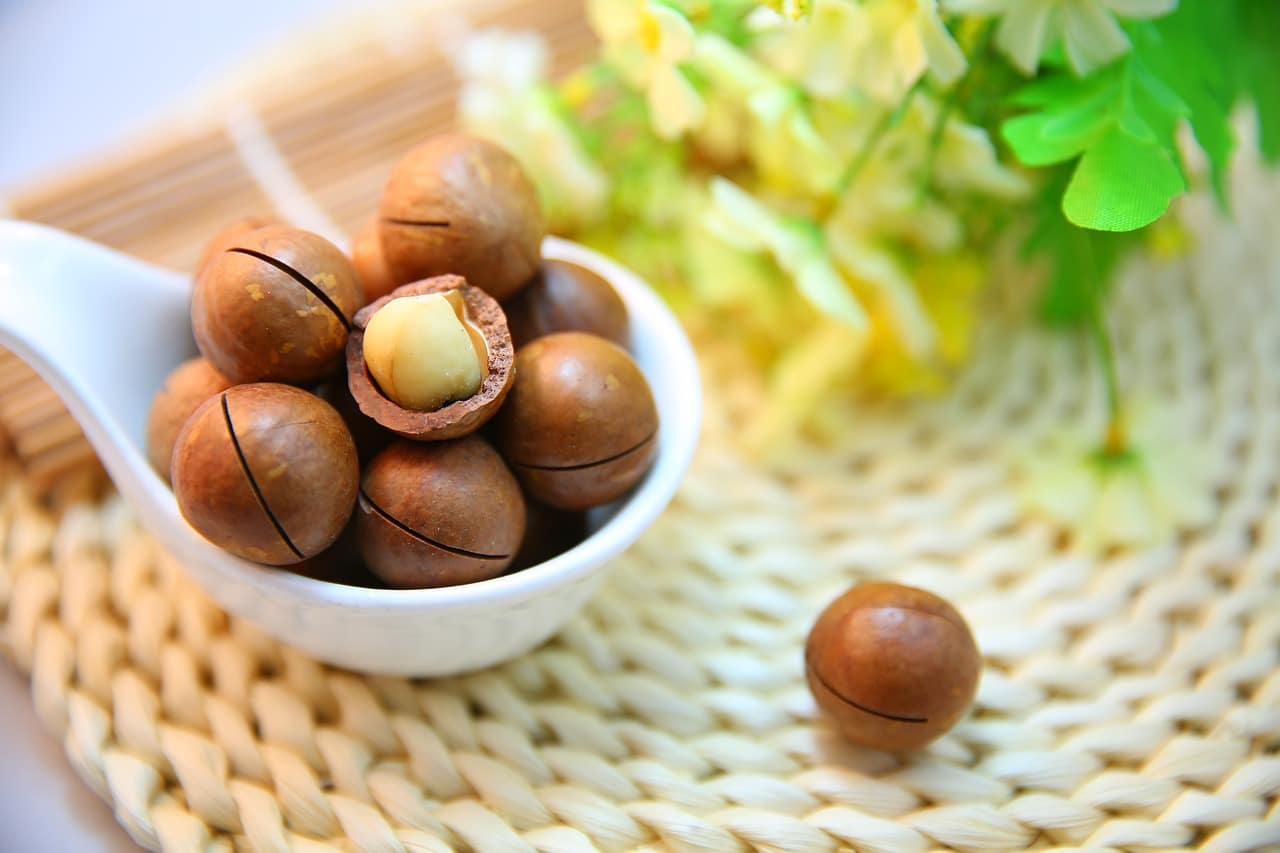
Macadamia nuts are highly toxic to dogs and can cause symptoms like vomiting, weakness, tremors, and fever. Even a small handful can lead to serious health issues, and the symptoms may not appear for a few hours. It’s best to avoid all types of nuts when feeding your dog, but macadamia nuts are particularly dangerous.
Ice Cream

Most ice creams contain lactose, which can cause stomach upset, gas, and diarrhea in lactose-intolerant dogs. Additionally, some flavors, like chocolate or coffee, contain ingredients that are toxic to dogs. While there are dog-safe frozen treats available, it’s best to avoid regular ice cream to prevent any potential digestive issues or accidental ingestion of harmful ingredients. Opt for homemade frozen dog treats for a safe, delicious alternative.
Caffeine

Caffeine, found in coffee, tea, soda, and energy drinks, is harmful to dogs. Even small amounts can lead to symptoms like restlessness, rapid breathing, heart palpitations, and muscle tremors. Since caffeine sensitivity varies from dog to dog, it’s best to avoid sharing any caffeinated drinks or foods with your pet.
Cooked Bones
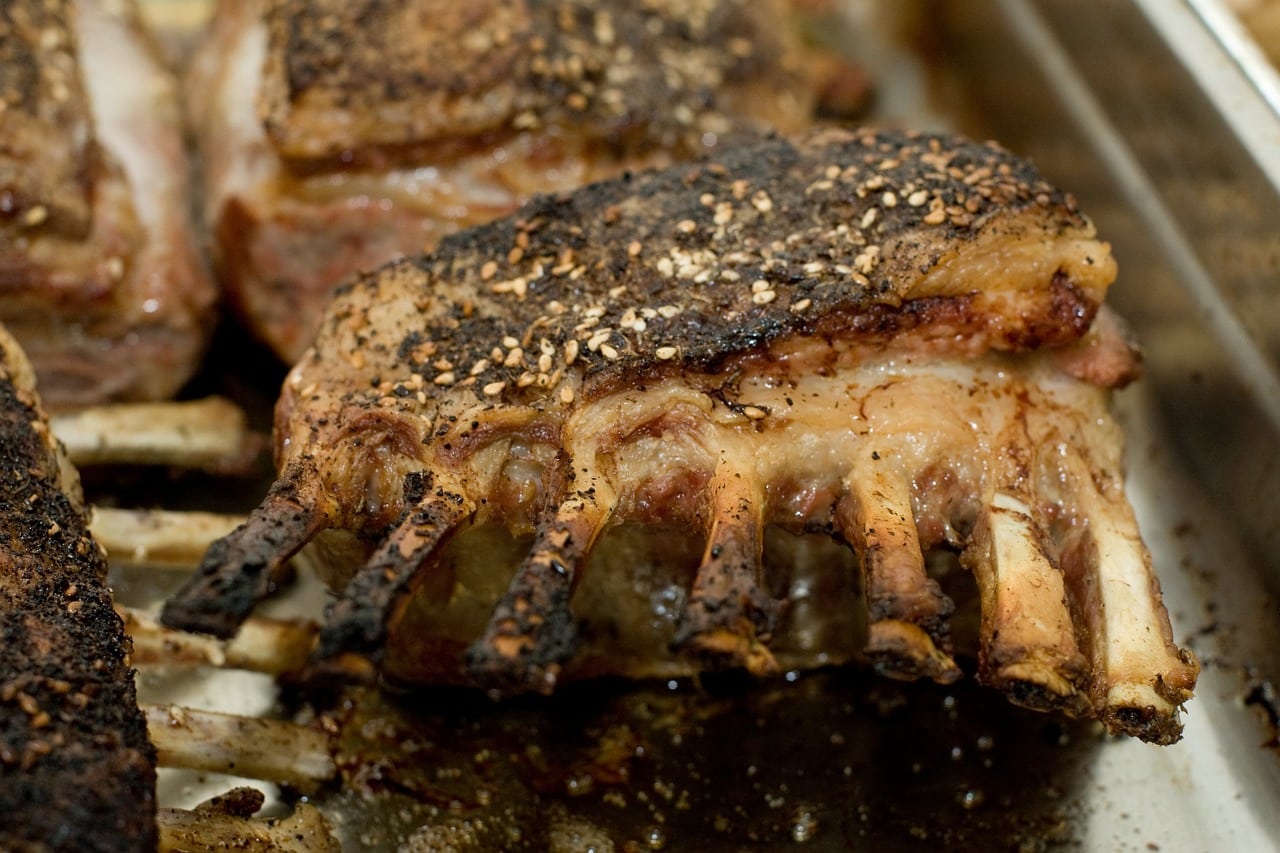
Cooked bones, especially poultry bones, can splinter and cause choking or internal injuries to your dog. They can also lead to digestive blockages, which may require surgery. While raw bones are generally safer, cooked bones should never be given to dogs as a treat or chew toy.
Raw Meat and Fish
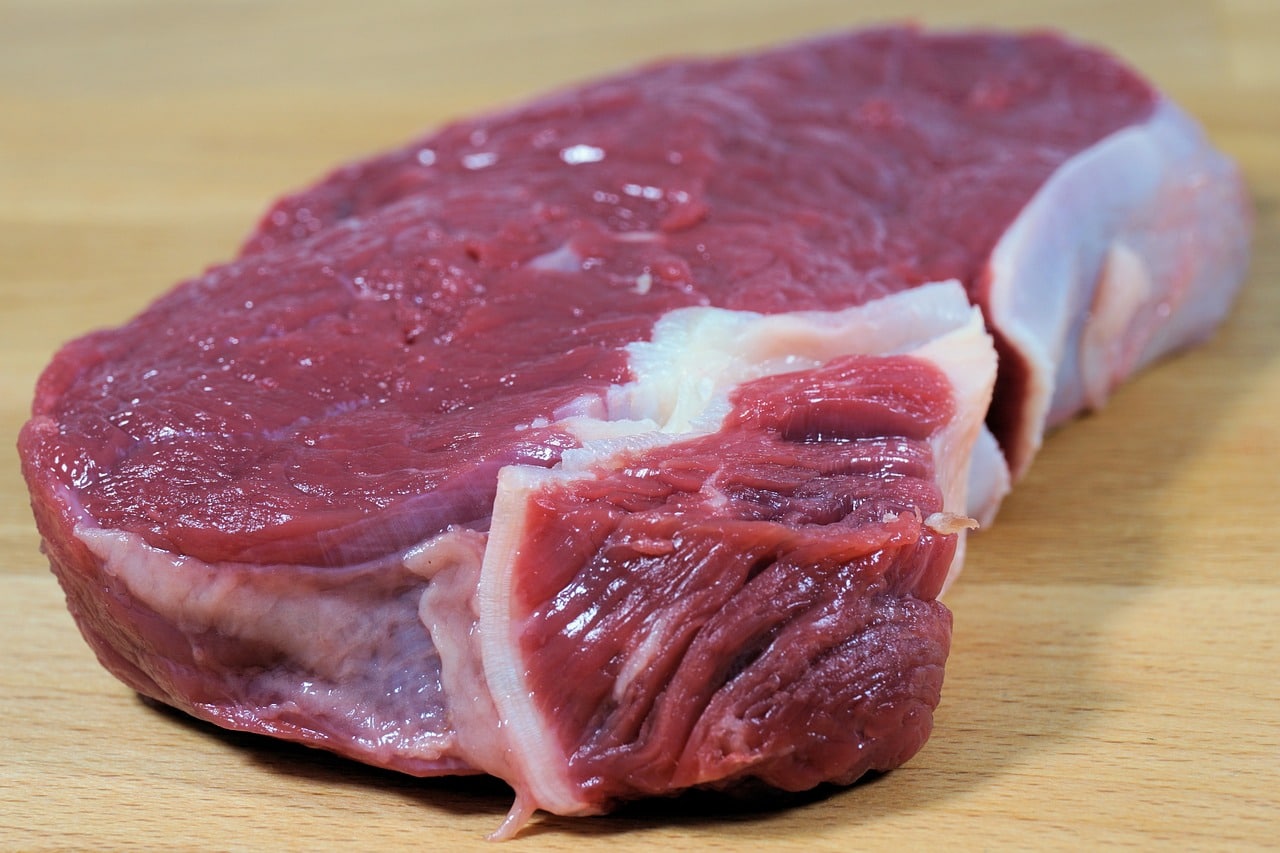
Raw meat and fish can contain harmful bacteria like salmonella or parasites that can lead to serious infections in dogs. Certain fish, such as salmon, can also contain parasites that are harmful if not cooked thoroughly. While some dogs may thrive on a raw diet, it’s essential to consult your vet to ensure it’s done safely.
Dairy Products
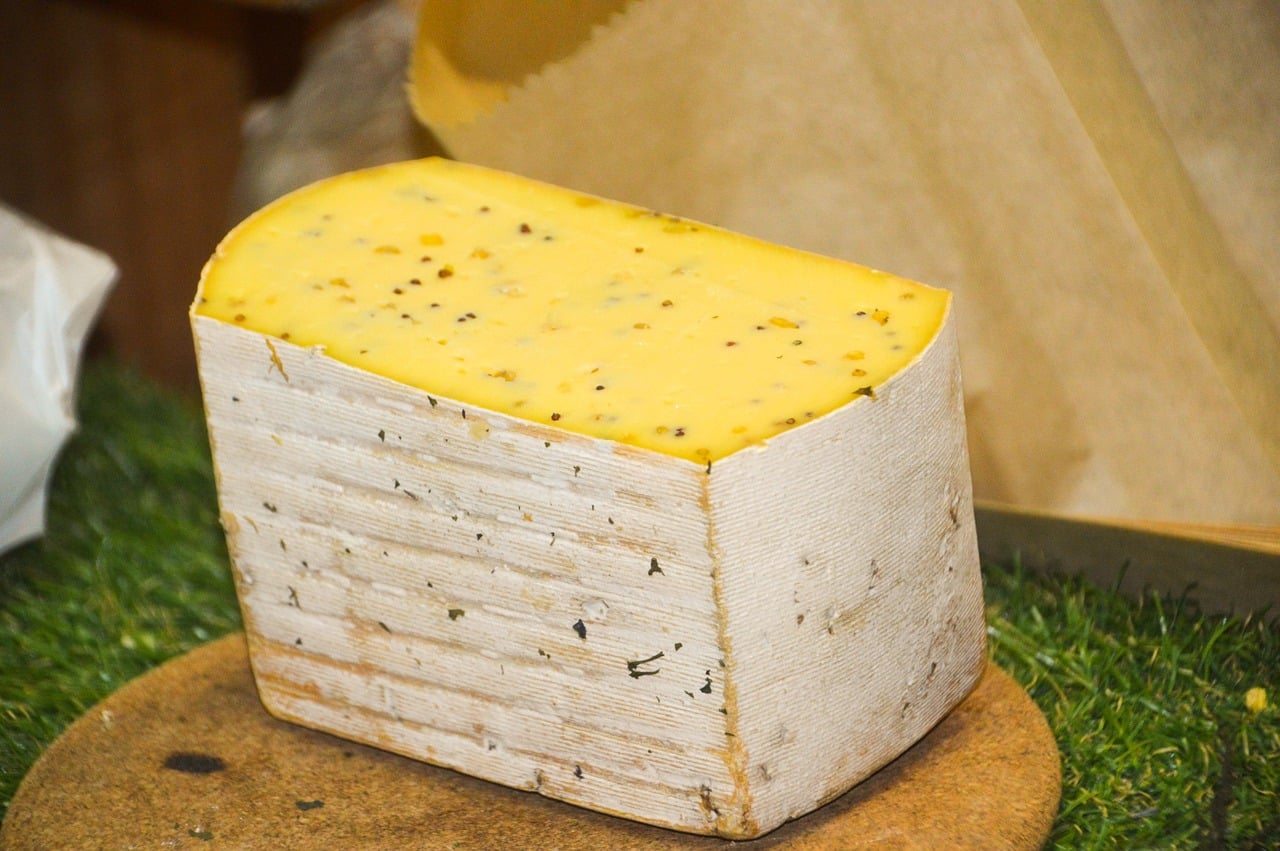
Many dogs are lactose intolerant, which means they have difficulty digesting dairy. Feeding your dog milk, cheese, or other dairy products can lead to stomach upset, gas, and diarrhea. Even though a small amount may be tolerated by some dogs, it’s best to avoid dairy as a regular part of their diet.
Yeast Dough
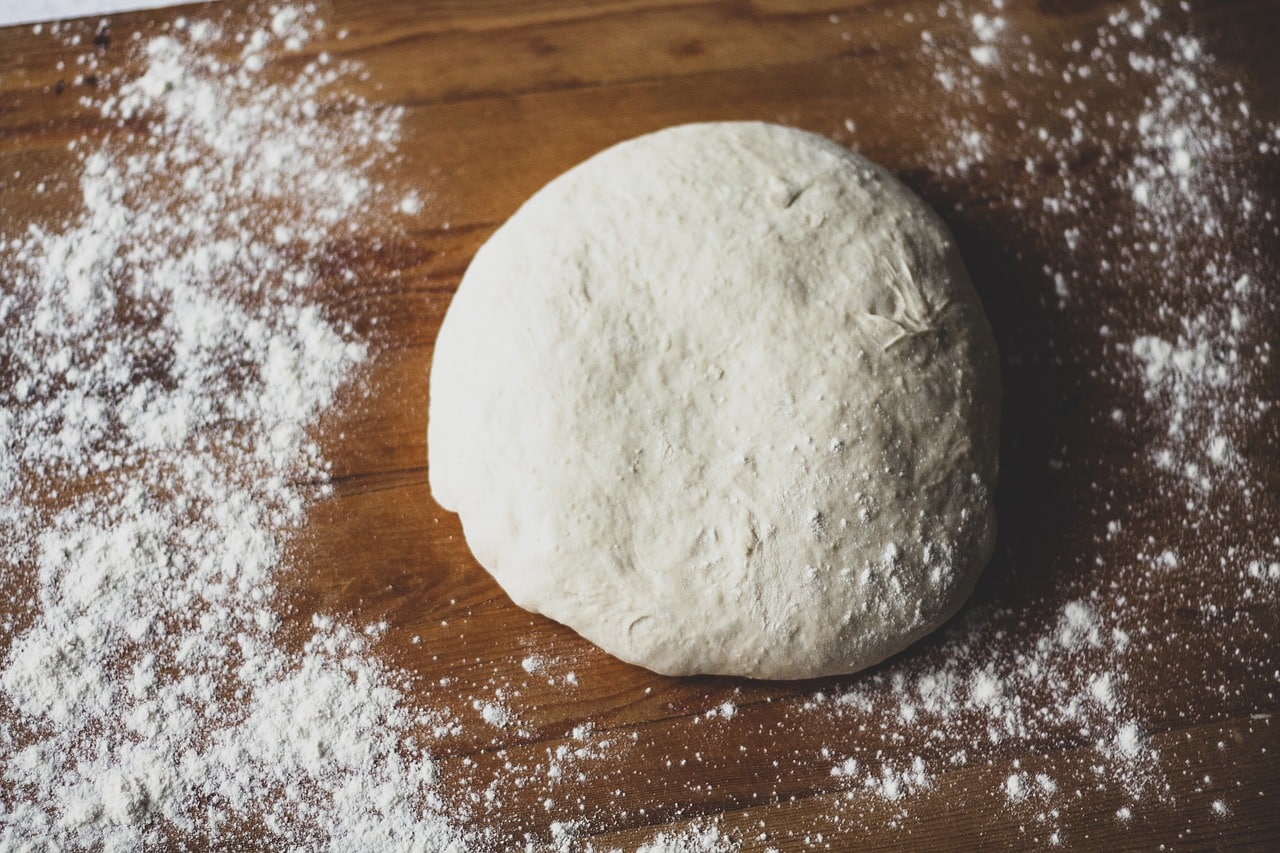
Yeast dough can rise and expand in a dog’s stomach, causing painful bloating and potentially dangerous complications. As the dough rises, it also produces alcohol, which can lead to alcohol poisoning. It’s essential to keep yeast dough out of reach if you’re baking to avoid any accidental ingestion.
Tomatoes
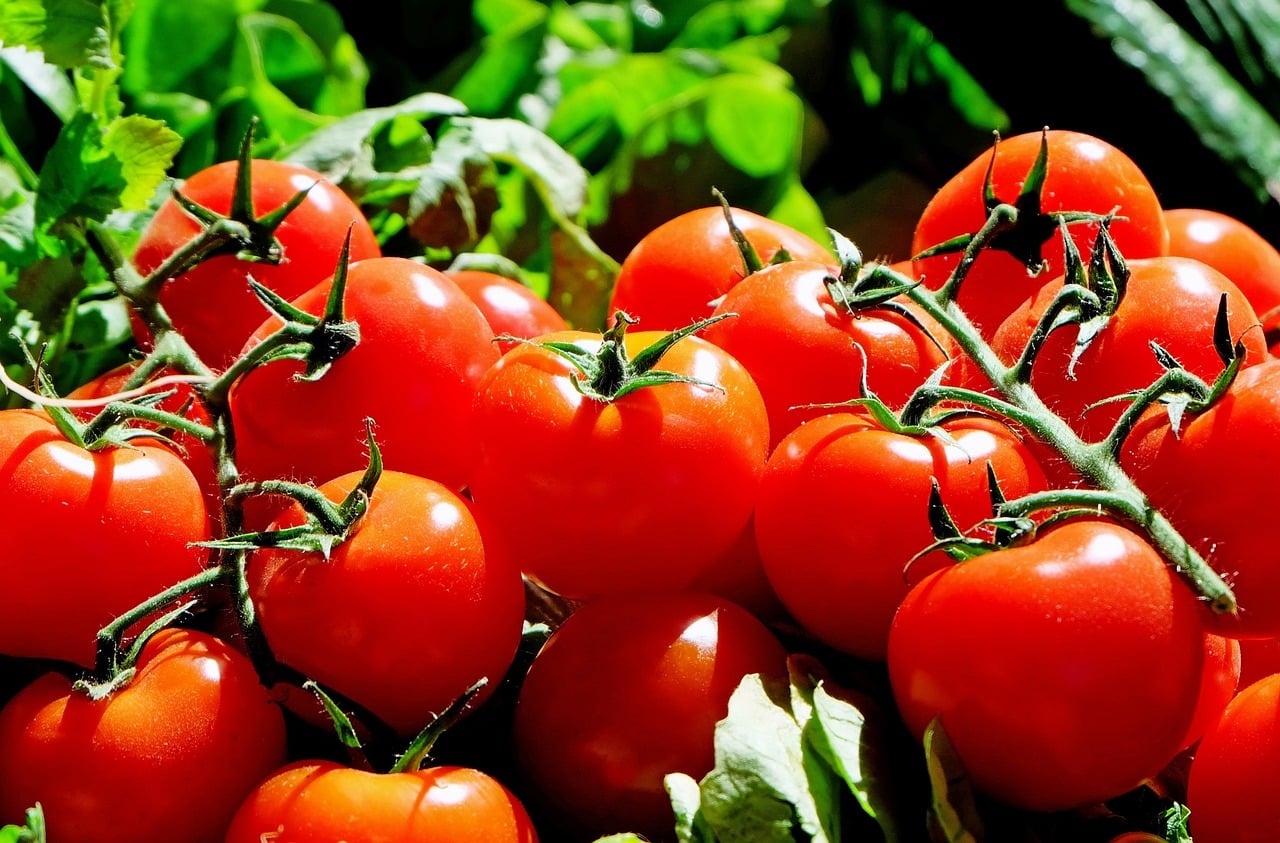
While ripe tomatoes are generally safe, unripe tomatoes and tomato plants contain solanine, a compound that can be toxic to dogs. Eating green tomatoes or the plant itself can lead to symptoms like vomiting, diarrhea, and lethargy. It’s best to keep dogs away from tomato plants and only allow them to consume ripe, red tomatoes in small quantities.
Salt
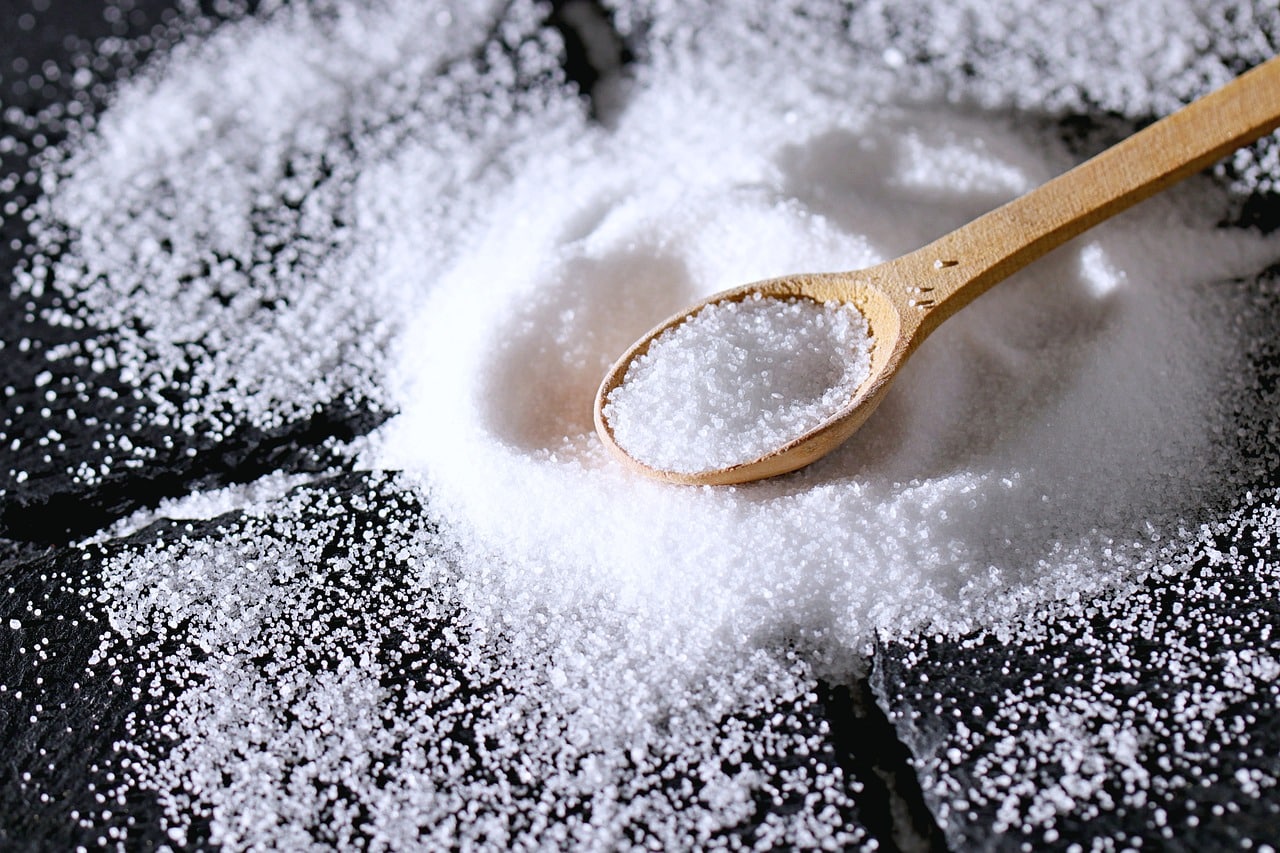
Excessive salt can lead to sodium ion poisoning in dogs, causing symptoms like vomiting, diarrhea, tremors, and seizures. Foods high in salt, such as chips, pretzels, and popcorn, should be avoided, as dogs don’t require high levels of sodium in their diet. Always be cautious about feeding your dog foods seasoned with salt.
Nutmeg
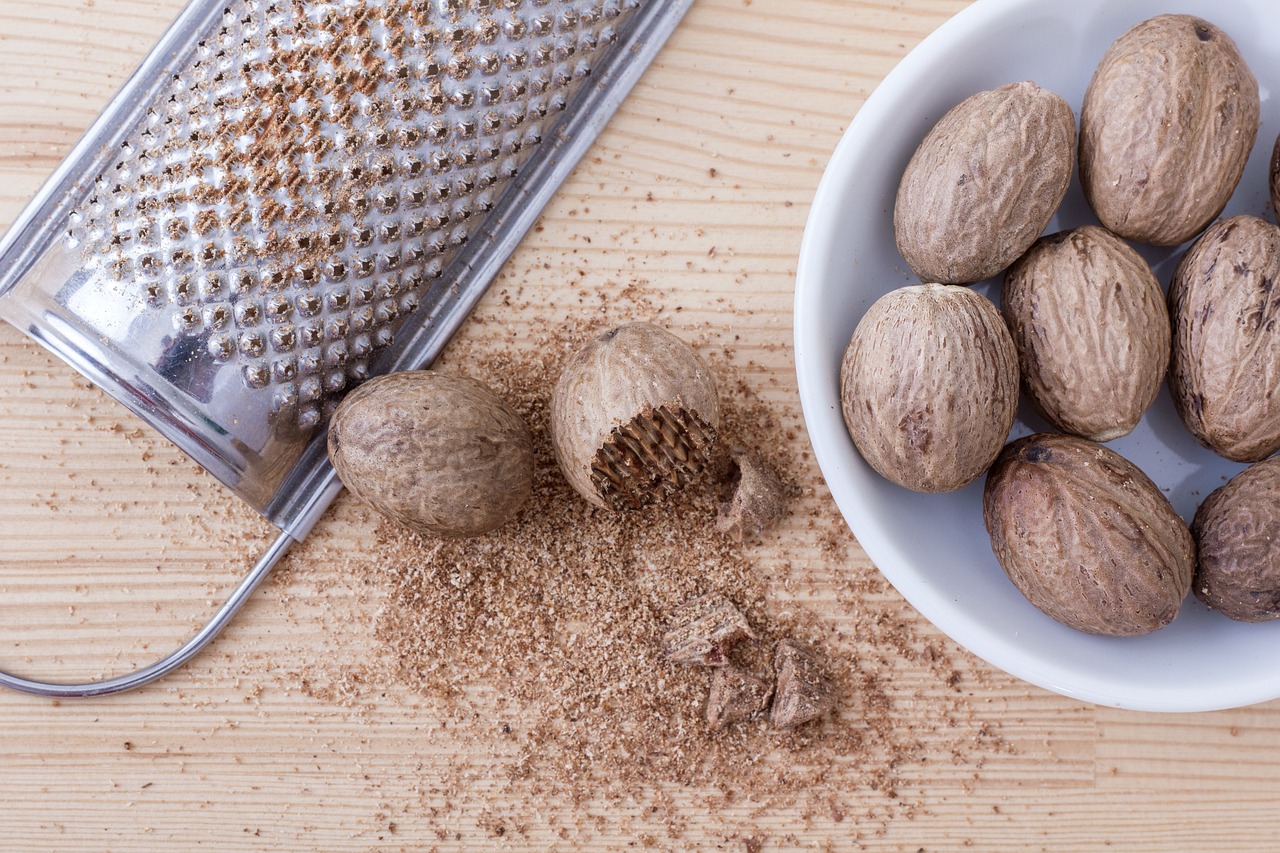
Nutmeg contains a compound called myristicin, which is toxic to dogs. If ingested in large amounts, it can lead to symptoms like disorientation, increased heart rate, and seizures. While it’s commonly used in baking, it’s best to keep any foods containing nutmeg away from curious pups.
Raw Eggs
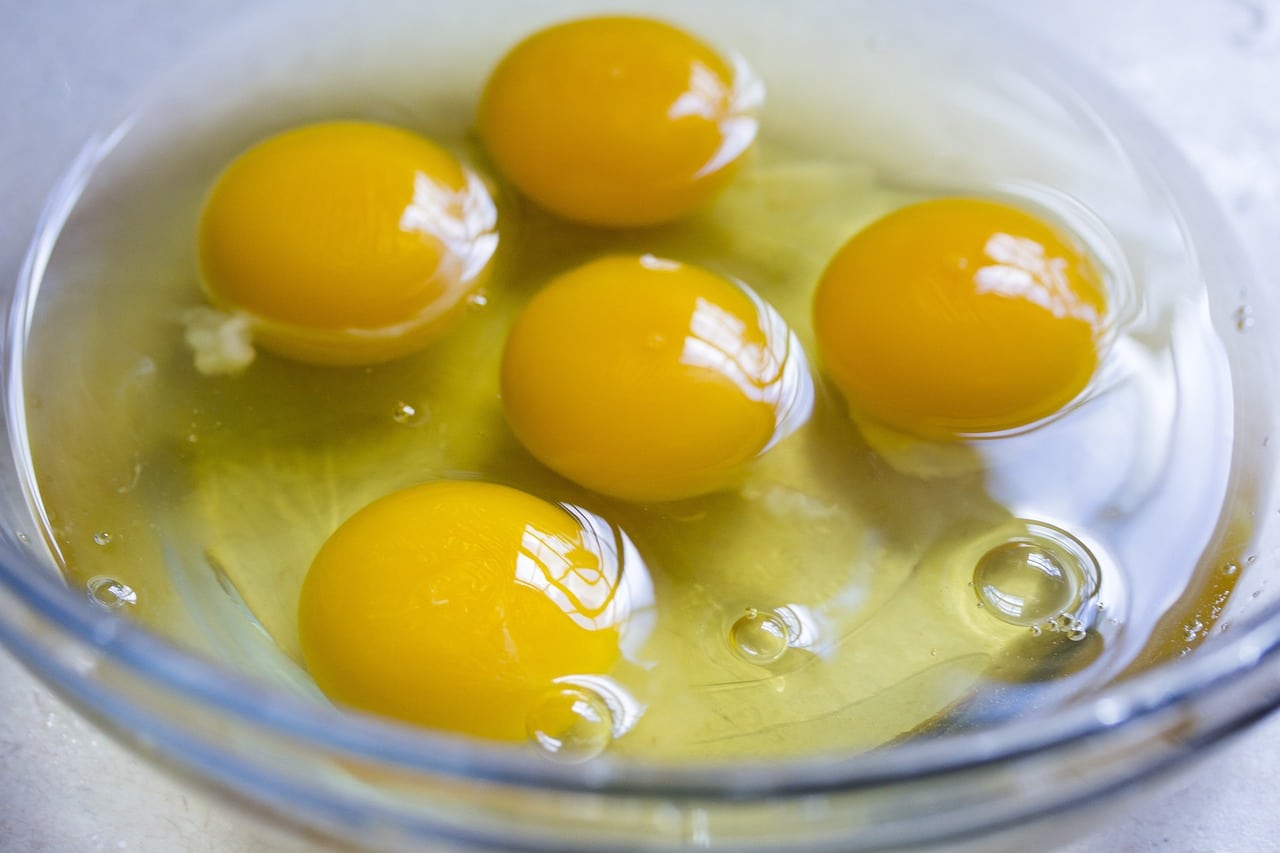
Raw eggs can carry bacteria like salmonella, which can cause food poisoning in dogs. Additionally, raw eggs contain avidin, an enzyme that interferes with the absorption of biotin, an essential B vitamin for skin and coat health. While some dog owners include raw eggs in their dog’s diet, it’s safest to cook them first to eliminate the risk.
Apple Seeds
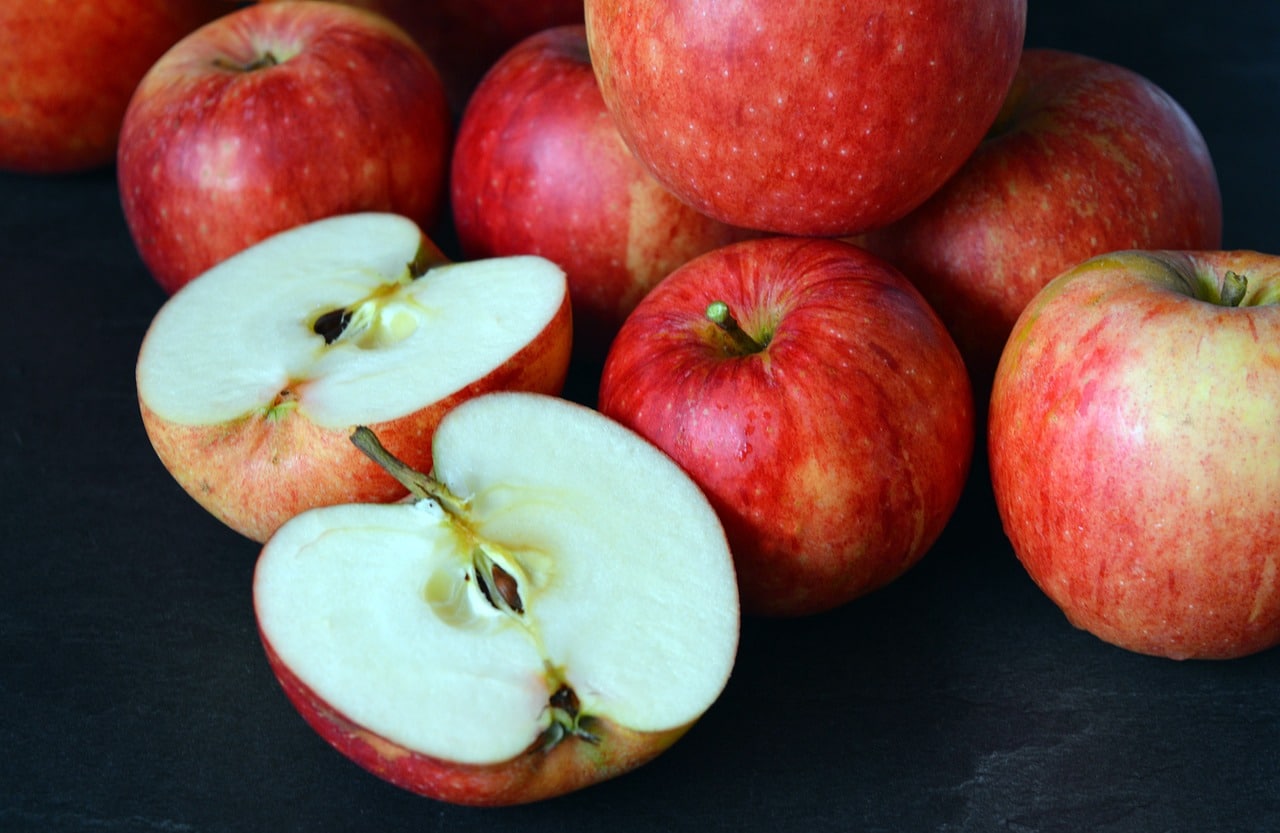
Apple seeds contain cyanide, which is toxic to dogs if consumed in large amounts. While an occasional apple slice is safe, it’s important to remove the seeds and core to avoid any risks. Apple seeds aren’t immediately dangerous in small quantities, but consistent exposure can lead to health issues over time.
Cherries
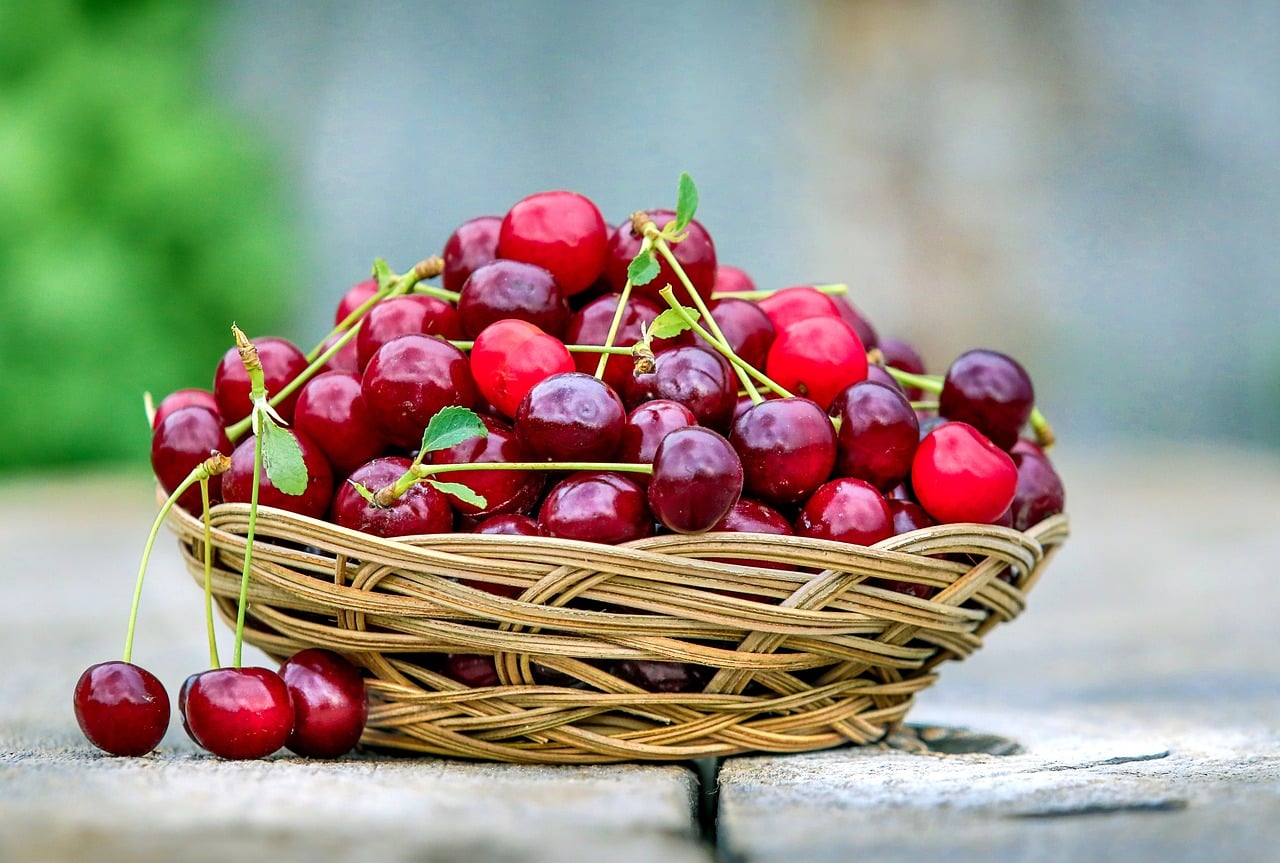
Cherries, particularly the pits, contain cyanide, which is harmful to dogs. If ingested, the pits can also cause choking or blockages in the intestines. While the flesh of the cherry is not toxic, it’s safer to avoid feeding cherries to your dog to prevent any accidental ingestion of the pit.
Peach and Plum Pits
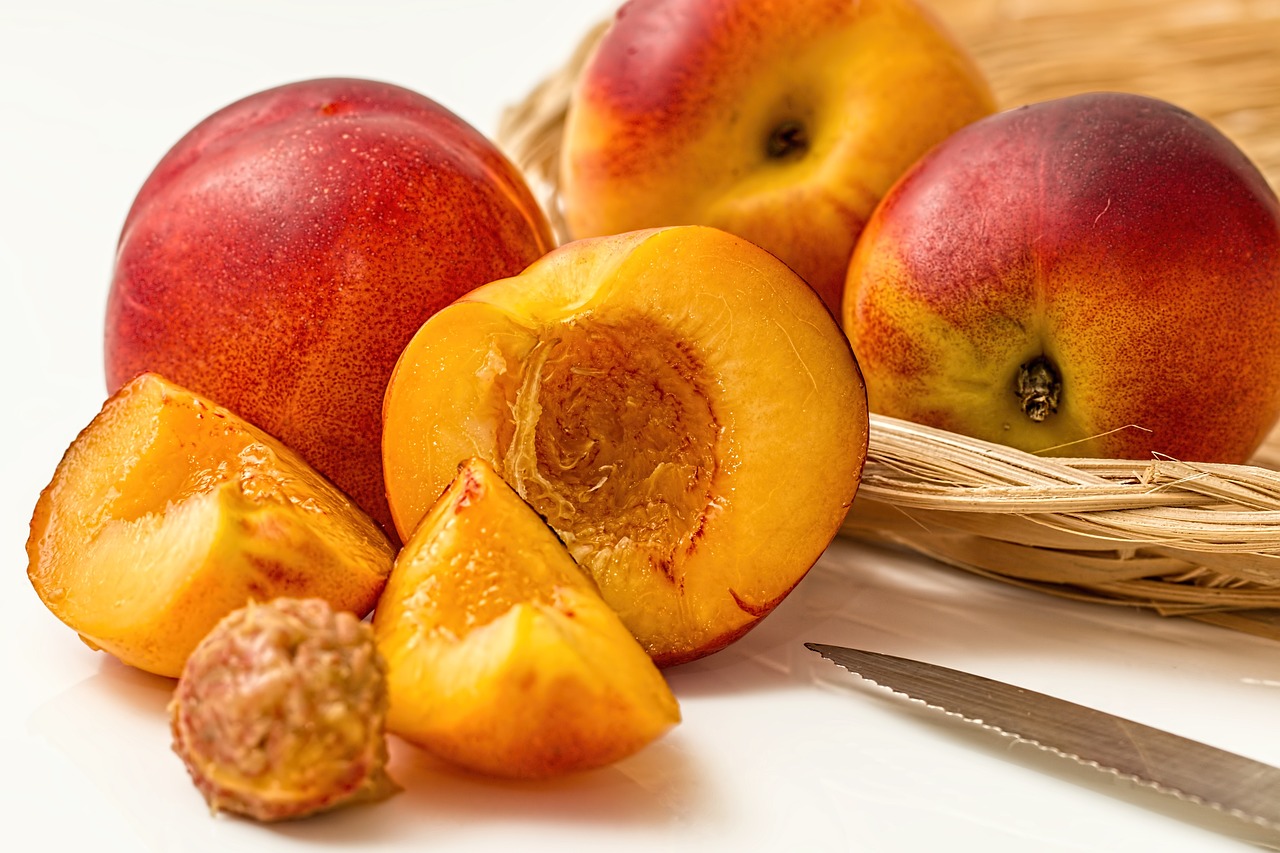
Similar to cherries, peach and plum pits contain cyanide and can be hazardous if chewed on or swallowed. The pits are also large enough to pose a choking hazard or cause intestinal blockages. Keep these fruits out of reach or remove the pits before giving your dog any small bites.
Mushrooms
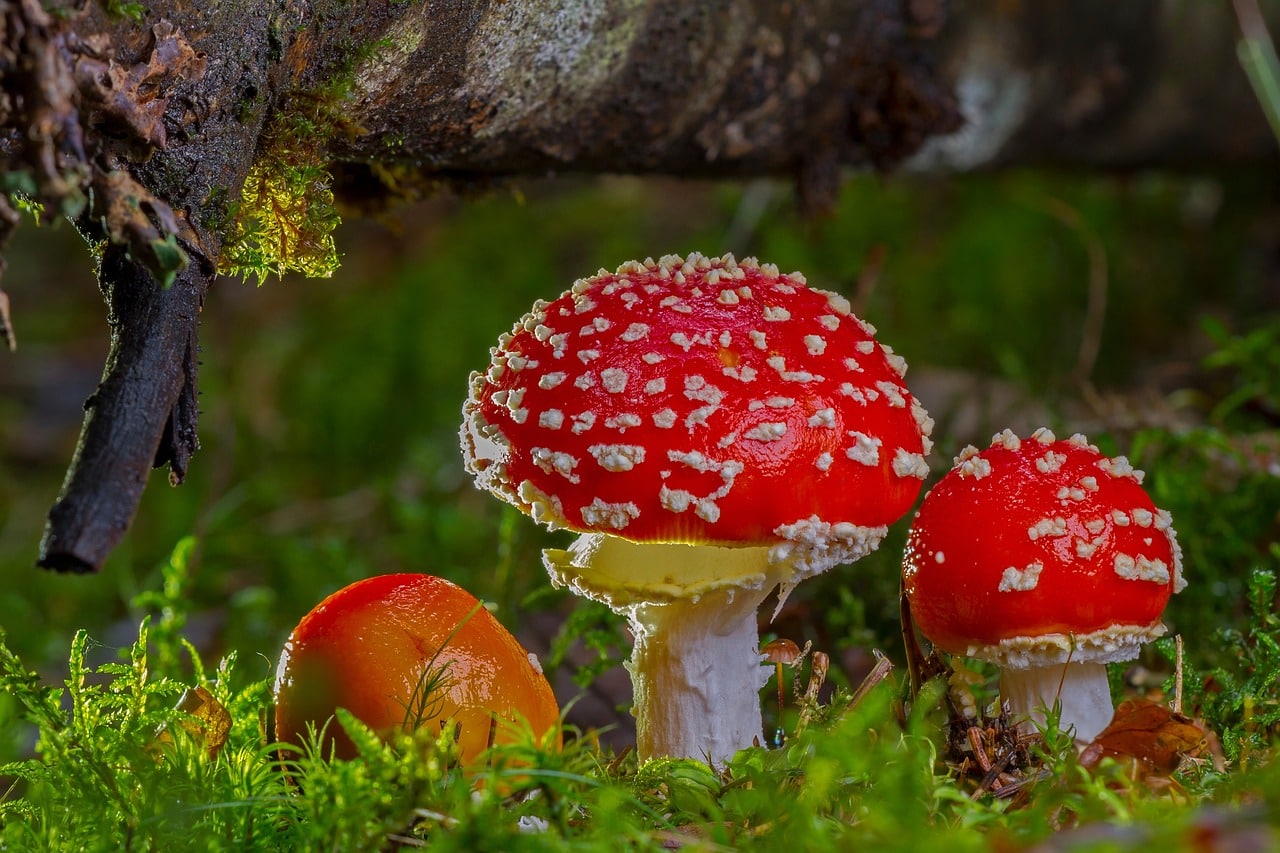
While store-bought mushrooms are generally safe, wild mushrooms can be highly toxic to dogs. Eating wild mushrooms can lead to symptoms like vomiting, diarrhea, tremors, and even organ failure in severe cases. It’s best to avoid feeding dogs mushrooms altogether to prevent any accidental ingestion of toxic varieties.
Liver
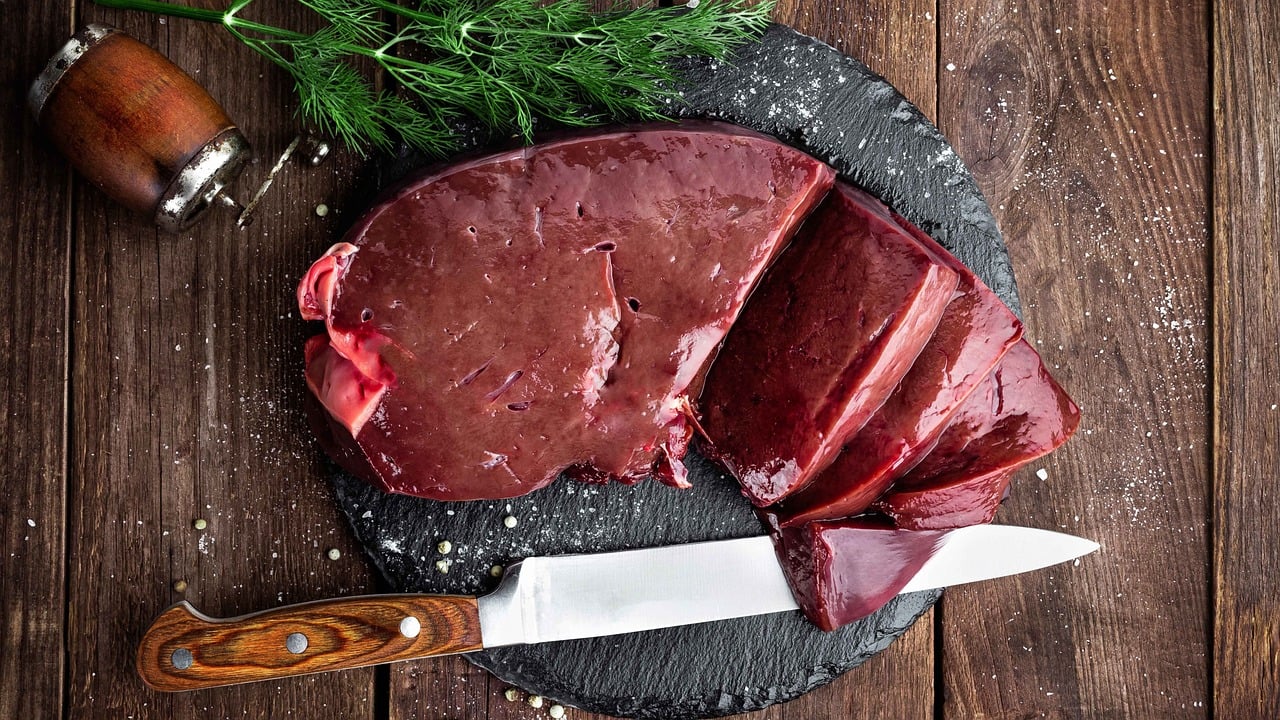
In small amounts, liver can be a healthy treat, but excessive liver intake can lead to vitamin A toxicity. Symptoms include bone deformities, muscle weakness, and digestive issues. Since vitamin A builds up in the liver, it’s essential not to overfeed liver treats to avoid toxicity.
Rhubarb
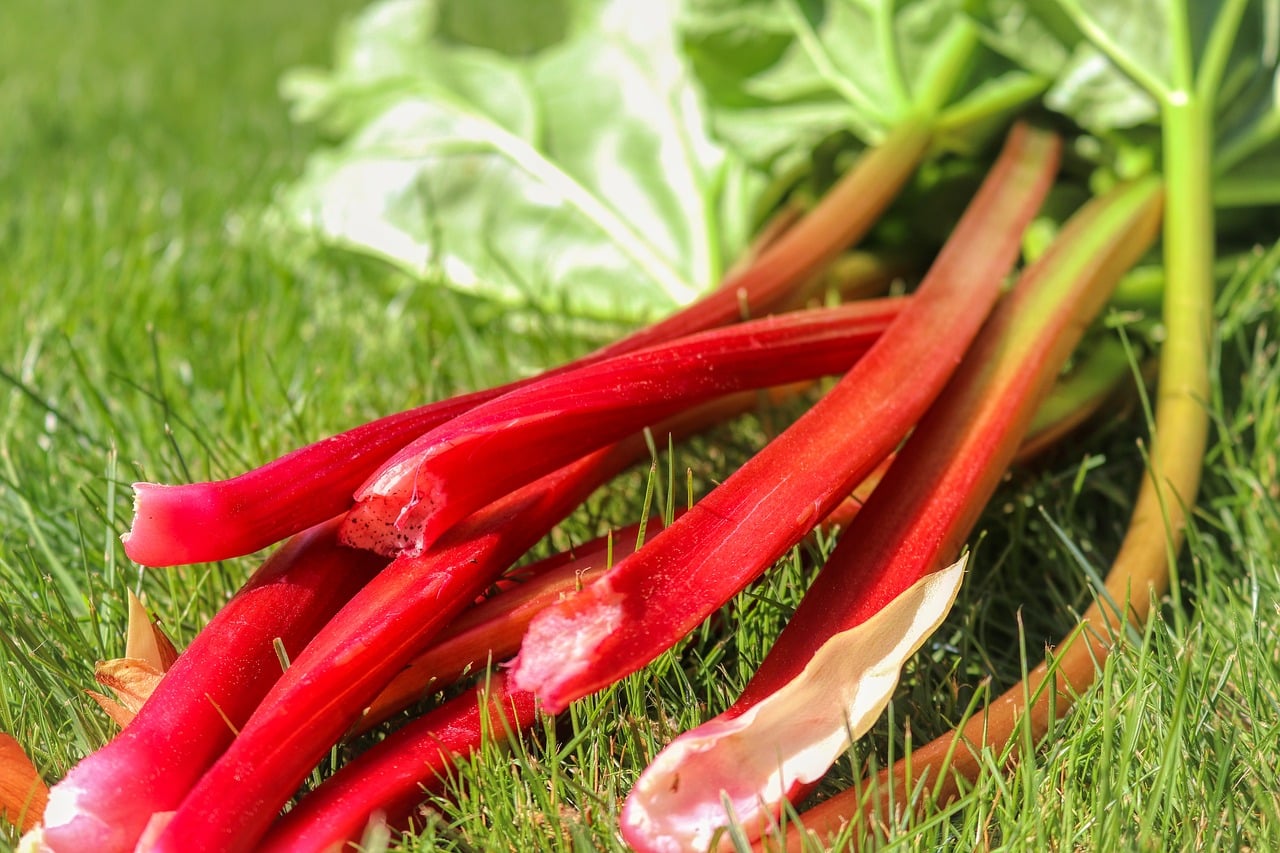
Rhubarb leaves contain oxalates, which can lead to kidney failure in dogs. Ingesting rhubarb can cause symptoms like drooling, vomiting, and tremors. The leaves are particularly toxic, so it’s best to keep rhubarb plants away from curious pups in the garden.
Mustard Seeds
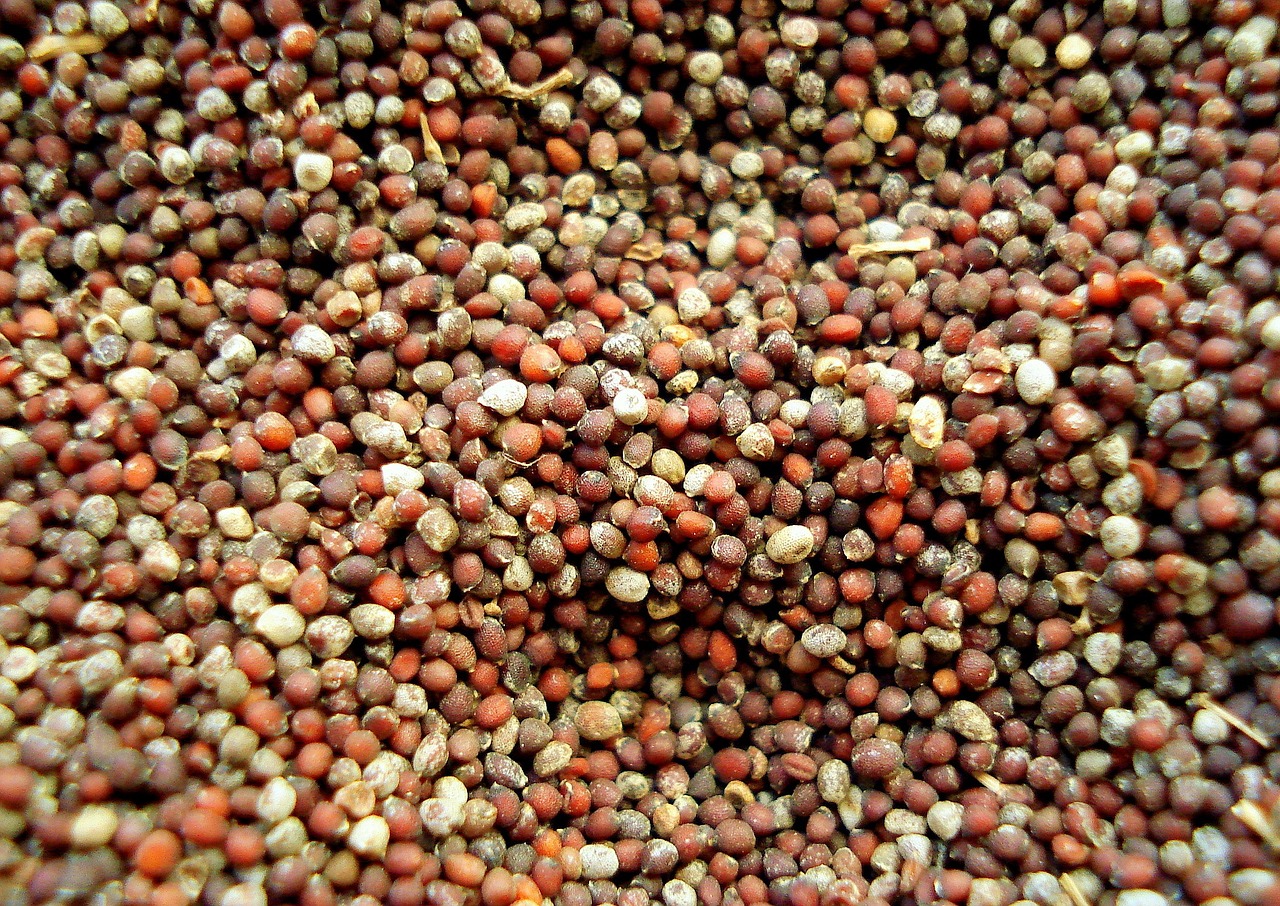
Mustard seeds and mustard are toxic to dogs and can cause severe gastrointestinal upset. Symptoms include vomiting, diarrhea, and abdominal pain. Avoid feeding any mustard-based foods to your dog, as they contain compounds that can irritate the digestive system.
Persimmons
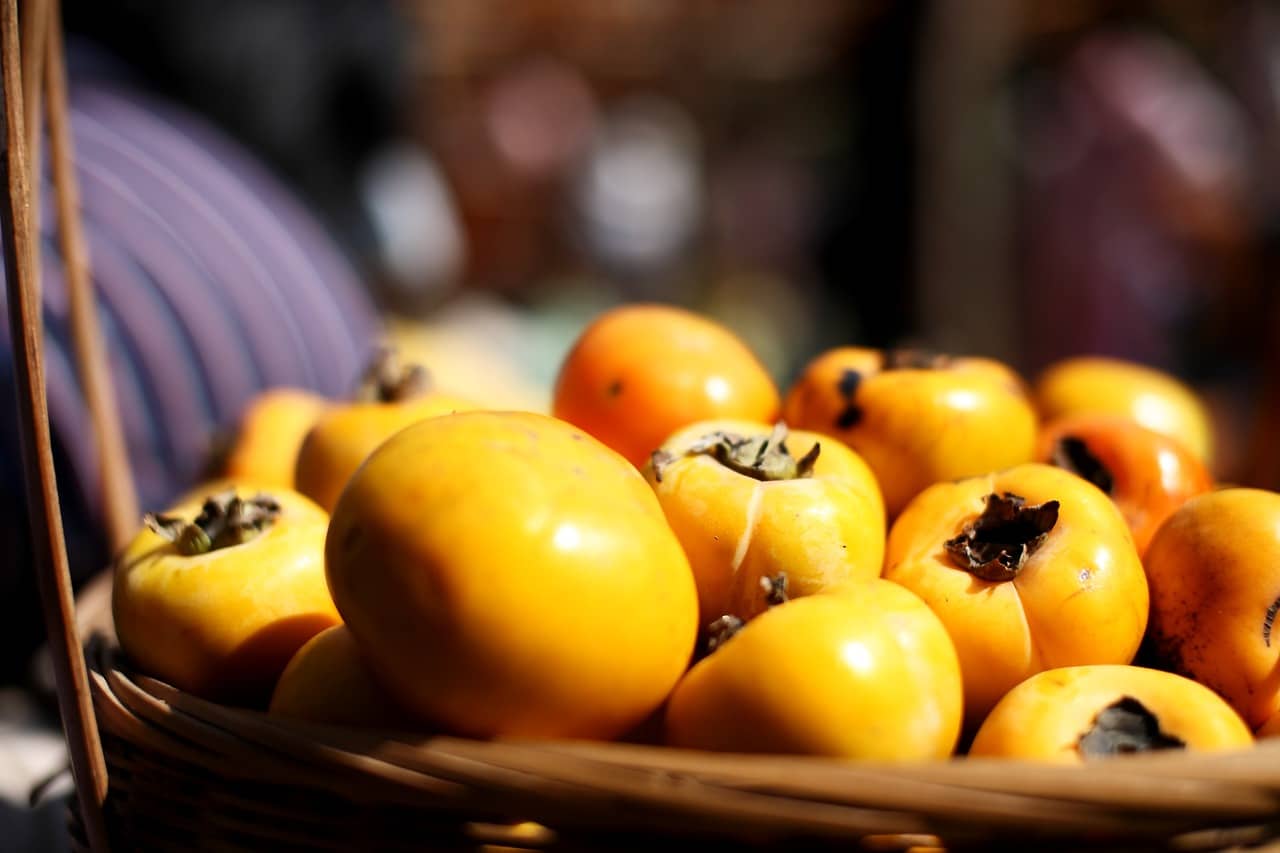
While the flesh of persimmons is safe, the seeds can cause intestinal blockages, especially in small dogs. Persimmons can also irritate the digestive tract, leading to discomfort or diarrhea. It’s best to remove the seeds or avoid feeding persimmons altogether.
Spicy Foods
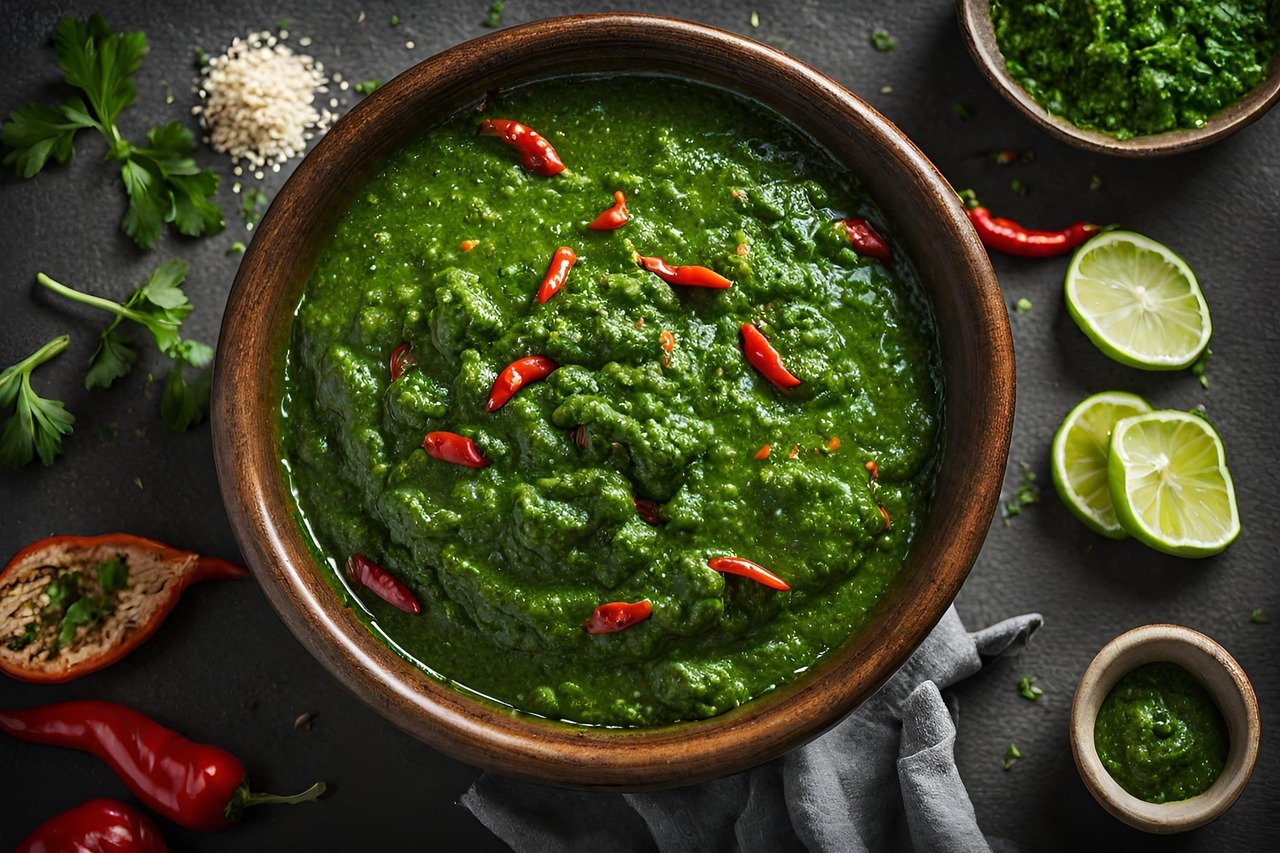
Spicy foods may not be toxic in the traditional sense, but they can be incredibly irritating to a dog’s stomach and digestive system. Dogs are sensitive to capsaicin, the compound in chili peppers that causes heat, which can lead to symptoms like vomiting, diarrhea, and dehydration. Additionally, the intense flavor may overwhelm your dog’s taste buds, leading to discomfort and distress. To keep their mealtime enjoyable, avoid sharing spicy snacks.
Green Potatoes
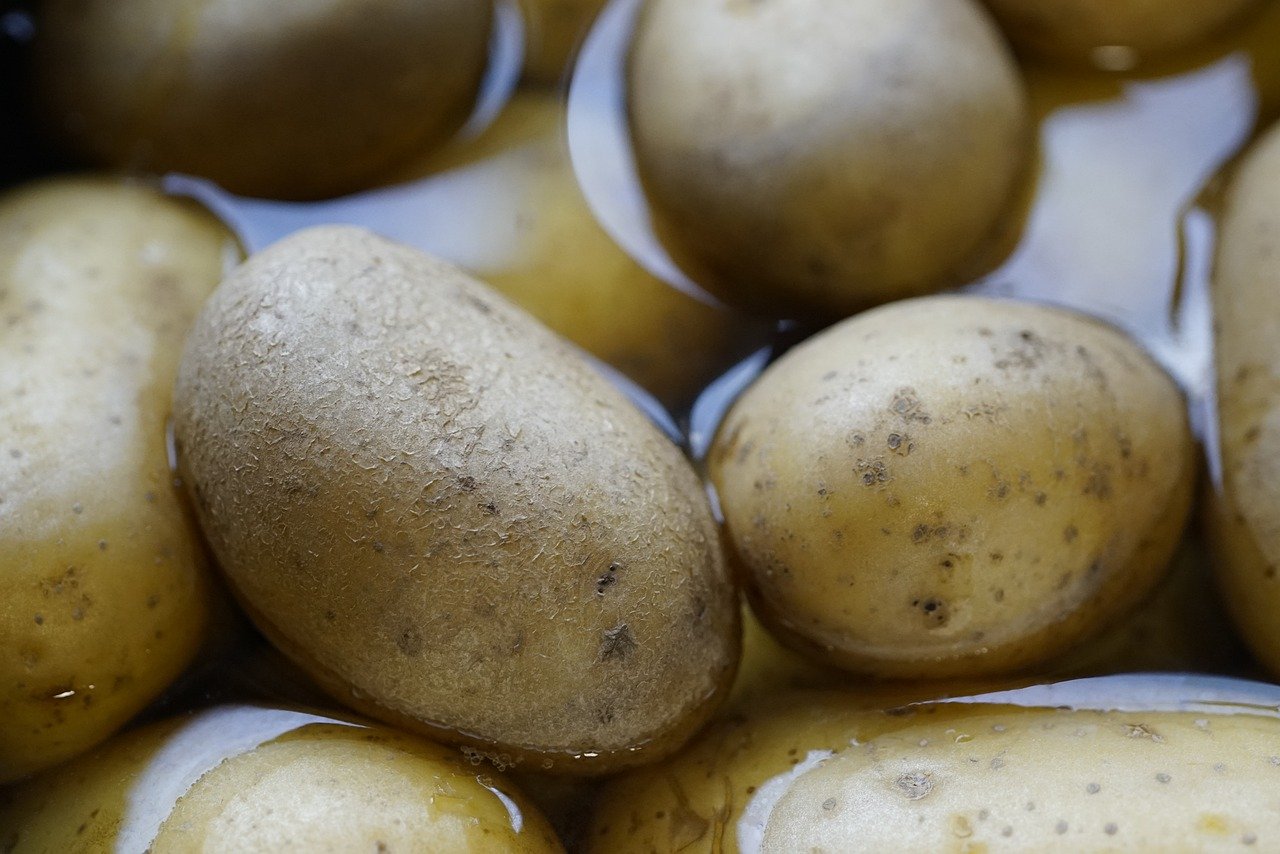
Green potatoes and potato plants contain solanine, a toxic compound for dogs. Symptoms of solanine poisoning include vomiting, diarrhea, and lethargy. Always ensure potatoes are fully ripe and cooked before giving any to your dog, and avoid giving them the skin or green parts.
Baking Powder and Baking Soda
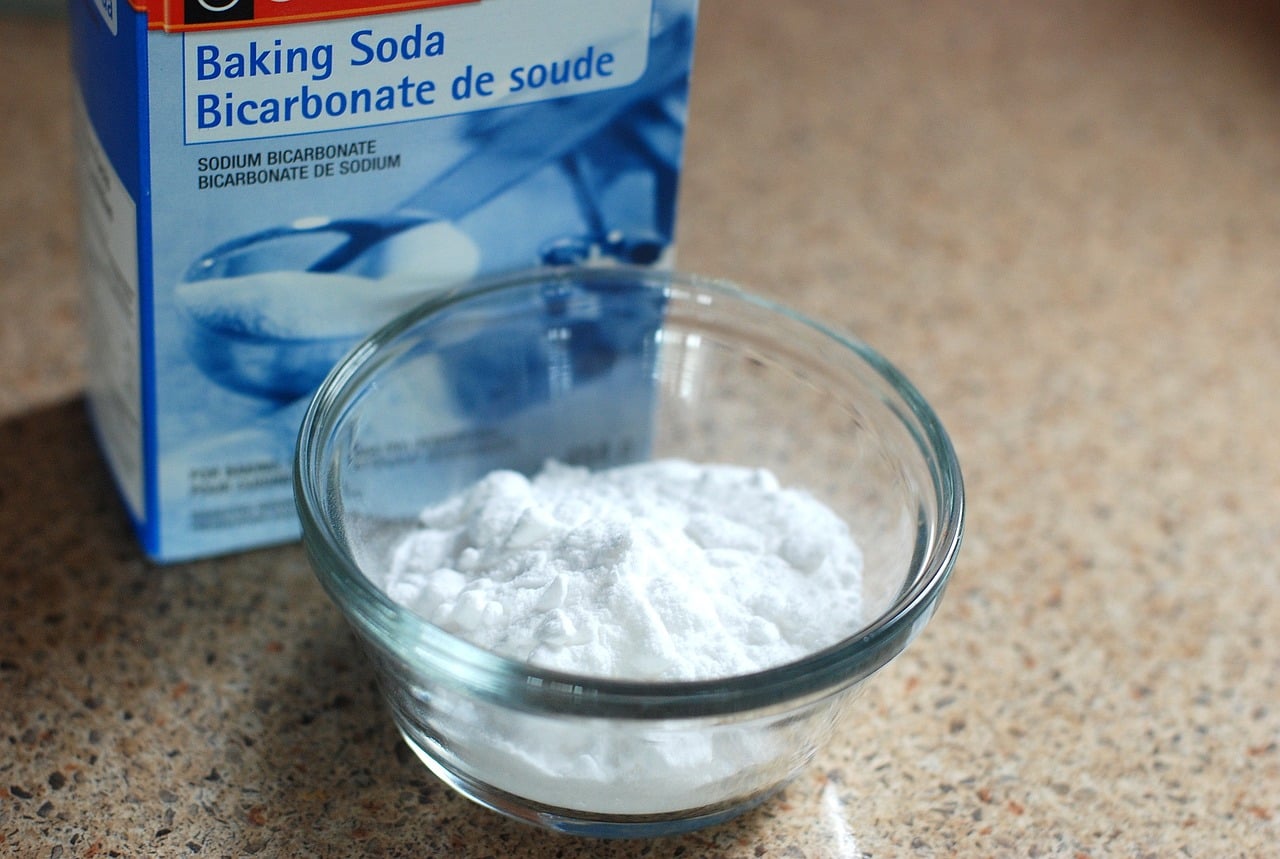
Baking powder and baking soda are highly toxic to dogs if ingested in large amounts, leading to electrolyte imbalances, muscle spasms, and congestive heart failure. These ingredients should be kept well out of reach, as even a small amount can be dangerous.
Hops
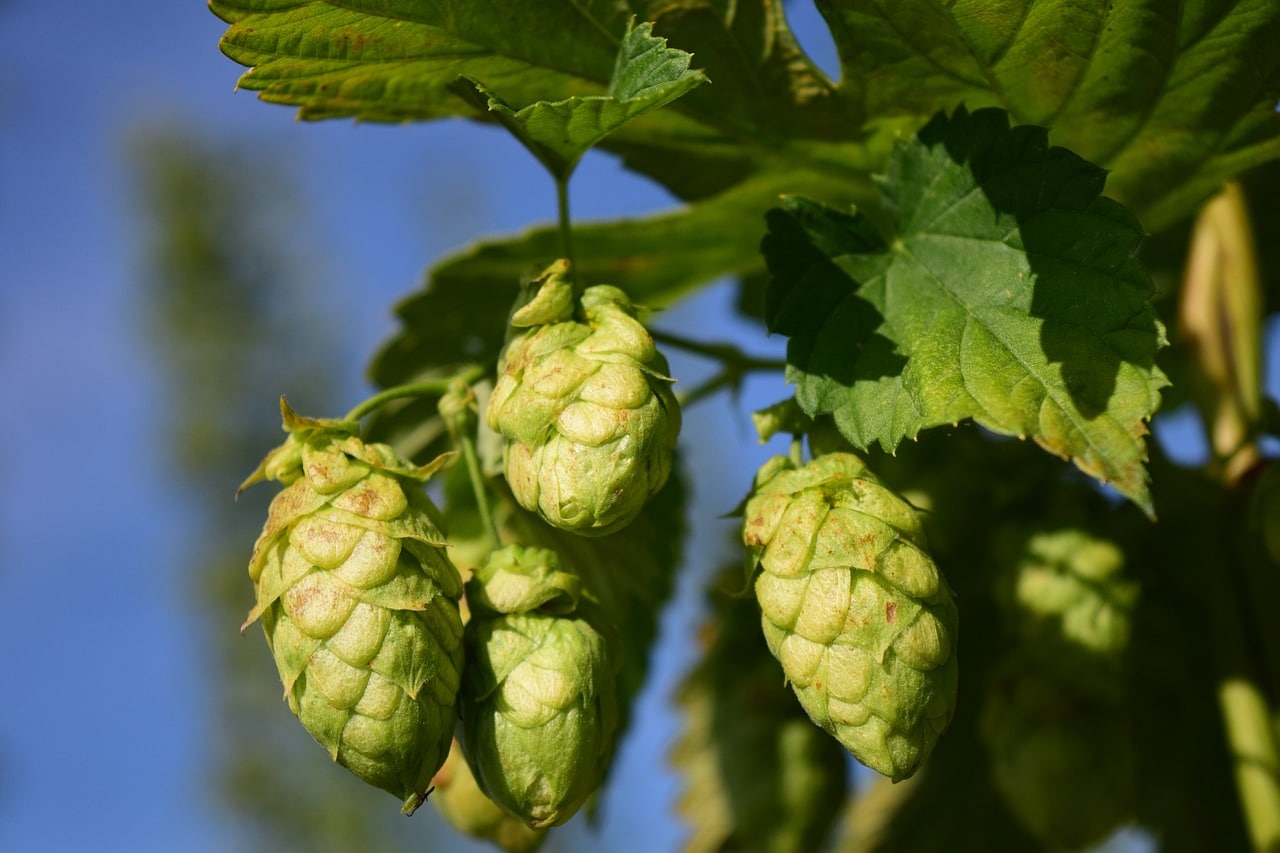
Hops, used in brewing beer, can cause malignant hyperthermia in dogs, a rapid increase in body temperature that can be fatal. Symptoms include excessive panting, fever, and vomiting. Avoid keeping hops around if you home-brew or have any related ingredients accessible to your dog.
Tobacco
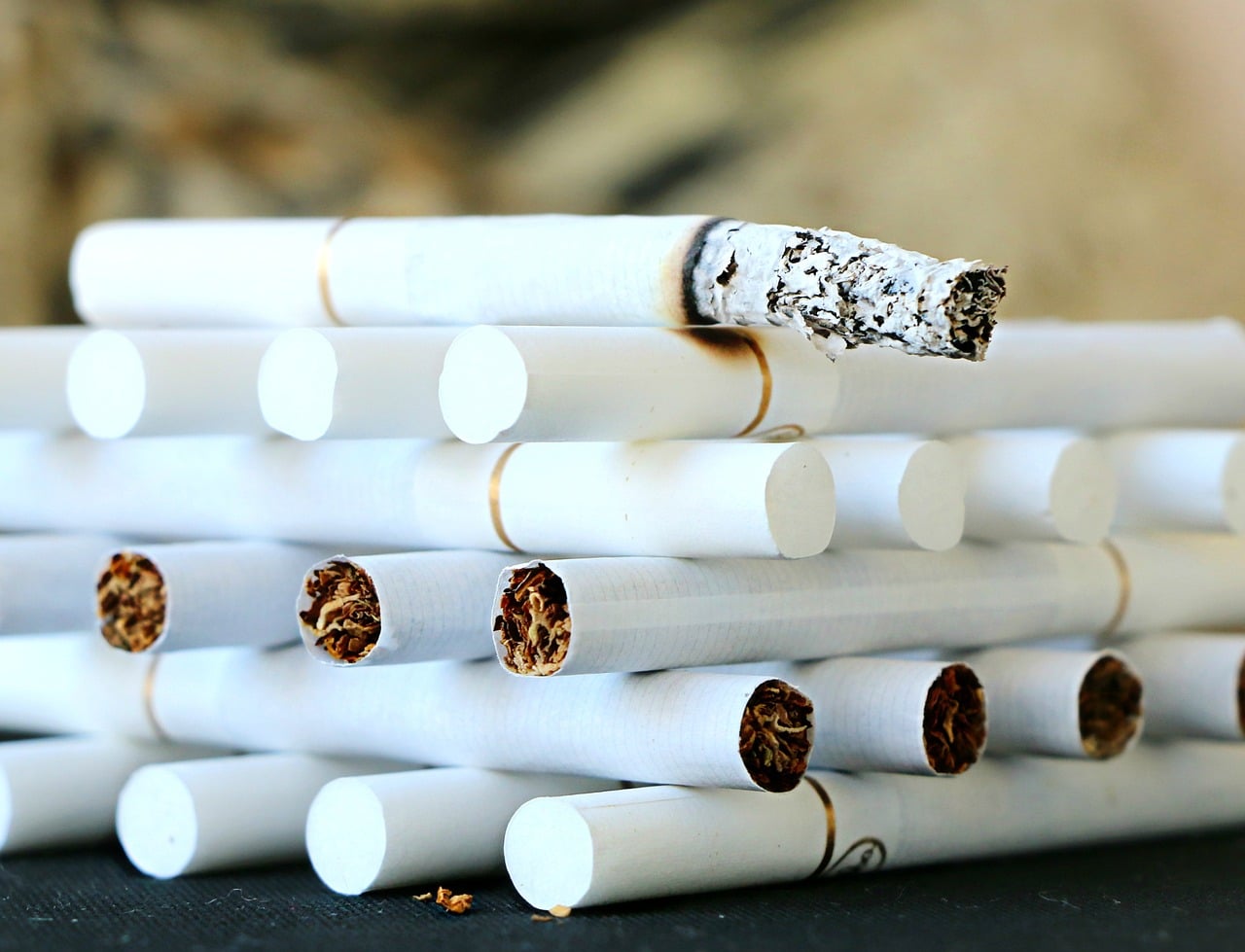
Tobacco contains nicotine, which is highly toxic to dogs. Ingesting even a small amount can lead to symptoms like rapid heart rate, tremors, vomiting, and seizures. Always keep cigarettes, cigars, and any tobacco products out of reach to protect your dog from nicotine poisoning.
Citrus Fruits
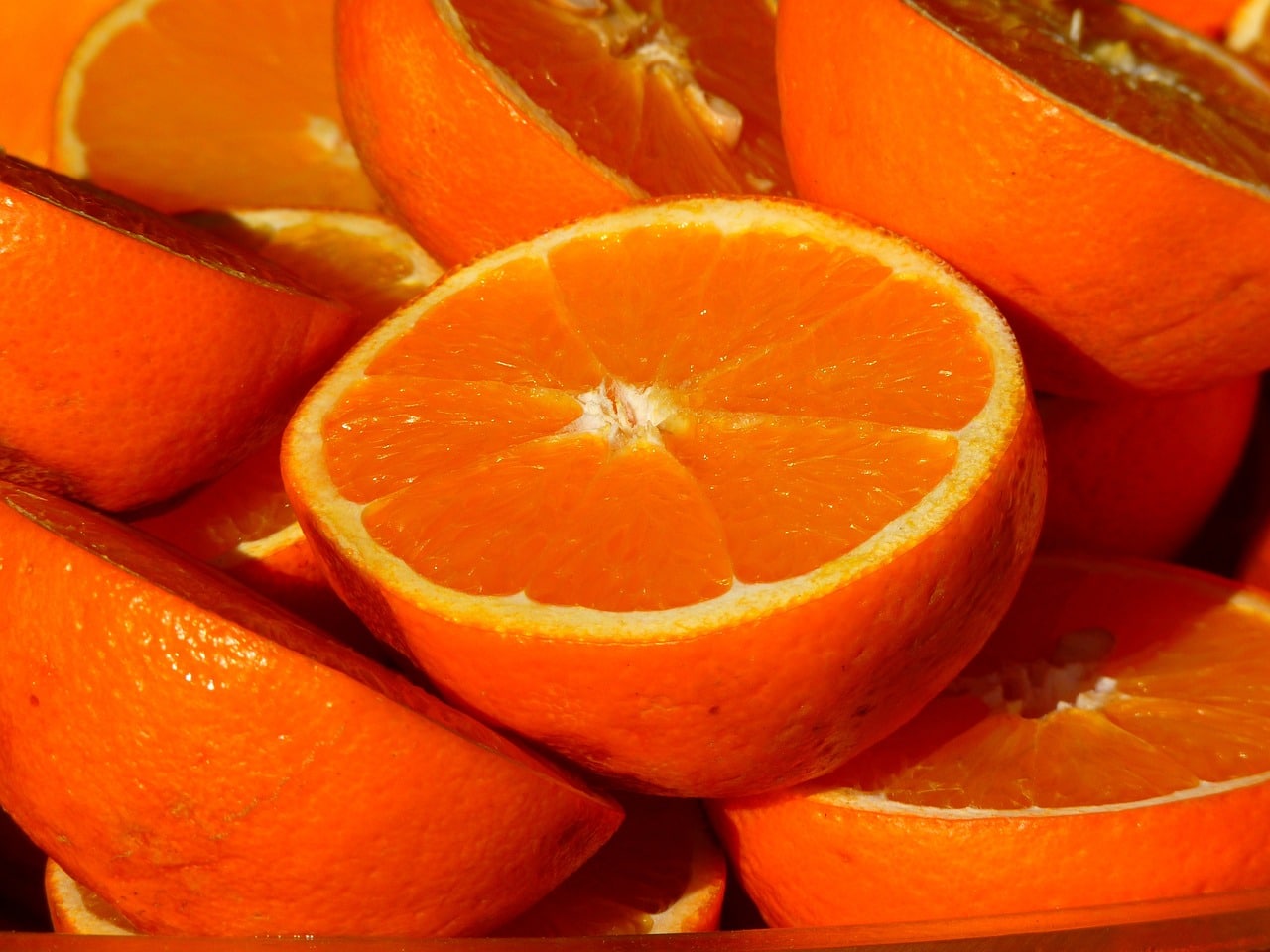
Citrus fruits like lemons, limes, and grapefruits contain citric acid and essential oils that can be toxic to dogs if ingested in large amounts. While small amounts of the fruit may cause only minor stomach upset, larger portions can lead to more severe issues, including central nervous system depression. The leaves, stems, and seeds are particularly harmful, so it’s best to keep all citrus fruits away from your dog’s reach.
Wrapping It Up A No-Go Buffet For Pups!
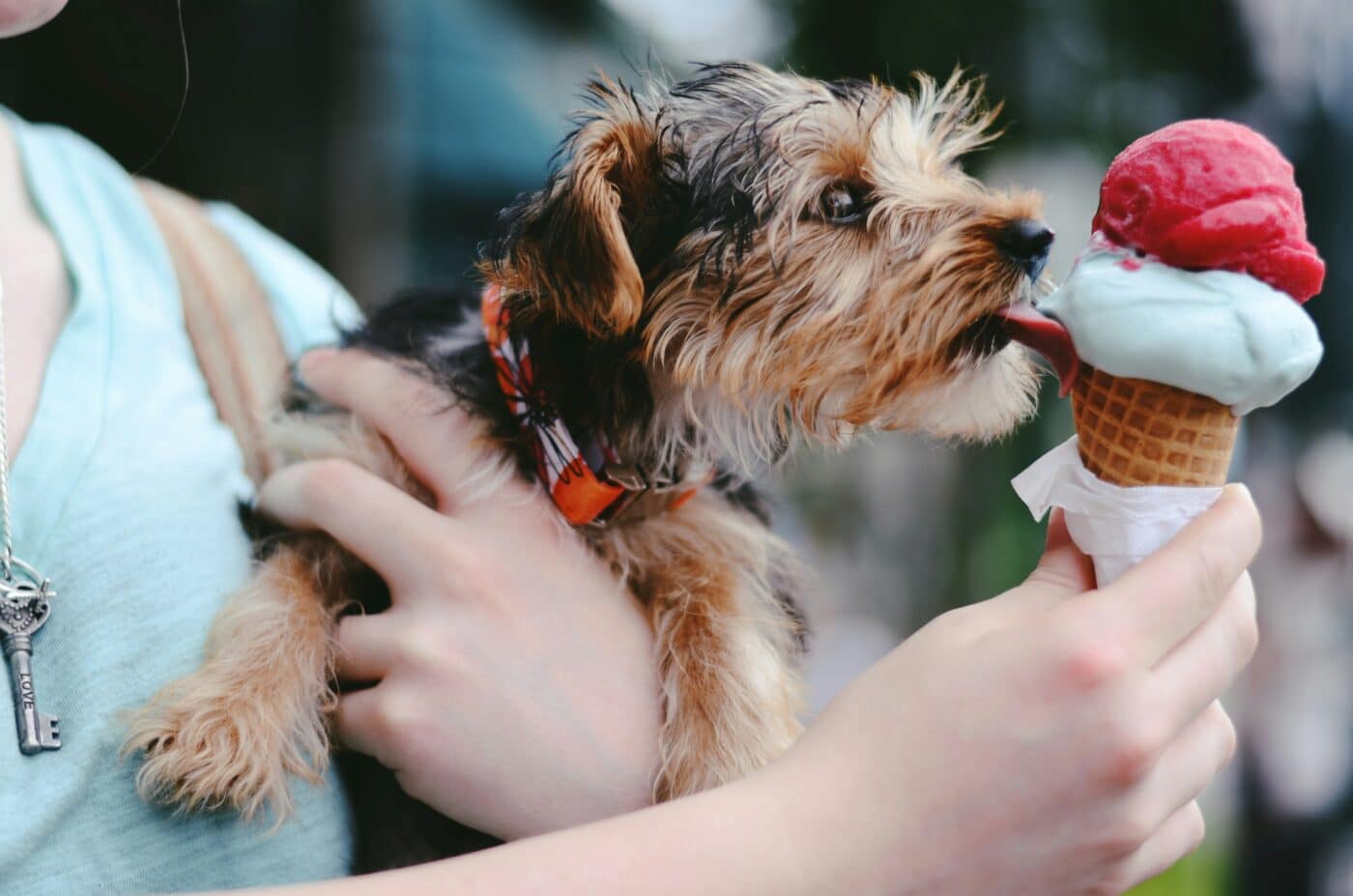
The next time your dog gives you those irresistible puppy-dog eyes, remember that sticking to dog-friendly treats and avoiding human snacks is the best choice for their health. While it’s tempting to indulge them, keeping their health and happiness in mind is most important. After all, a healthy pup is a happy pup—no chocolate cake or sugary treats needed! By choosing safe snacks, you’re ensuring more tail wags, playful energy, and joyful moments are shared, free from the risks of harmful foods.
The post 30 Dangerous Foods Your Dog Should Never Eat appeared first on iHeartDogs.com.
